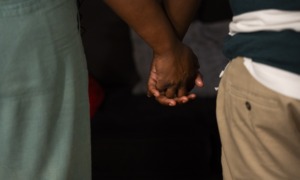Kids and Adults: The Culture Gap
Amazed by what today’s kids don’t seem to know or by what they take for granted? Each year, Beloit College in Wisconsin puts that feeling in perspective by reminding adults who work with kids just how different their cultural references are.
Most of this year’s college freshman were born in 1985. As far as they’re concerned:
Gas has always been unleaded.
Paul Newman has always made salad dressing.
Pete Rose has always been a gambler.
Richard Burton, Orson Welles, Karen Ann Quinlan and the U.S. Football League have always been dead.
They have always had a PIN.
They have always been able to make phone calls from airplanes.
Datsuns have never been made.
Computers have always fit in their backpacks.
Stores have always had checkout scanners.
Contact: (608) 363-2625.
High Court Mulls Political Donations By Teenagers
The U.S. Supreme Court held an unusual session last month to hear four hours of arguments on the constitutionality of parts of last year’s campaign finance reform act, including a provision that prohibits minors from contributing to political campaigns.
Opponents of the ban on teen donors see reason for optimism. The ban was unanimously struck down in May by a three-judge federal panel, which split on most other provisions of the act.
“The allegation is that some parents are using minor children to channel money,” says American Center on Law and Justice (ACLJ) counsel Jim Henderson. “But the proper way to deal with that is by enforcing existing law, not punishing minors that might be able to make their own choices.”
The Bipartisan Campaign Reform Act of 2002 set more stringent standards for the use of “soft-money” contributions while raising the limits for “hard-money” contributions. The acts also said that “an individual who is 17 years old or younger shall not make a contribution to a committee of a political party.”
Proponents of the act say the law will prevent parents from using their children as conduits for donations in excess of the limits for individuals.
But ACLJ lead counsel Jay Sekulow, who argued before the court for repeal of the minors provision, told the justices that very little evidence of such donations had been provided.
The Federal Election Commission found “a suspicion of conduit giving,” Sekulow told the court, but did not recommend a ban on contributions by older adolescents. He said the commission has never asked for the ages of contributors, making it difficult to determine whether conduit giving is common enough to warrant a ban.
Among the plaintiffs was Emily Echols, a politically active 14-year-old from Georgia, who says she would like to donate $100 to a state senate candidate.
Echols admits she had not thought about donating before being approached to be a plaintiff in the case. Her father, Tim, is the founder of TeenPact, a 10-year-old Christian nonprofit devoted, it says, to helping adolescents develop “the skills and passion necessary to impact the nation for Jesus Christ.”
“We live in an apathetic culture. Our message needs to be: We want more youth involved,” says Tim Echols. “A limitation is okay, but let’s pick a number. Let’s not ban minors completely from giving. I would have a compromise position, but it’s not 15 or 16” years old.
Proponents of the provision say the line has to be drawn somewhere, and 18 is a traditional line in political matters. “There are 17-year-olds who could [contribute on their own] perfectly well, and 19-year-olds that will be used by their parents for giving,”
says Don Simon, counsel for the campaign finance reform advocate Common Cause. “Congress drew this line as policy matter, and I think it makes a lot of sense. There is an intuitive link to voting.”
Science Panel Wants A Nonprofit to Fight Youth Drinking
A report on how to curb underage drinking has left alcohol industry representatives with a bitter taste in their mouths.
The report to Congress last month from the National Academy of Sciences (NAS) recommends significant new approaches to fighting youth alcohol consumption, including:
• The alcohol industry should join with private and public partners to establish an independent, industry-funded nonprofit foundation to curb underage drinking.
• Movie, TV and music ratings should be adjusted to consider the appearance of, or references to, underage drinking.
• Congress and state legislatures should raise excise taxes to reduce underage drinking (by making alcohol more expensive) and to fund efforts to fight it.
The research panel, convened by the NAS’ Institute of Medicine, estimated the social cost of teenage drinking in the United States at $53 billion annually, including $19 billion from traffic accidents and $29 billion from violent crimes.
Alcohol industry trade associations, already critical of a research panel that one group saw as stacked against the industry, howled at the proposals for higher excise taxes and stricter ad policies.
“The NAS panel relied on a compilation of existing information, much of which contained erroneous conclusions, as the background for their report,” Beer Institute President Jeff Becker said in a prepared statement. “Given this, we are not surprised to see misguided recommendations such as raising beer excise taxes.”
“The panel recommended the same things that NAS did in 1991,” said David Fehr, president of the National Beer Wholesalers Association (NBWA). “They could have just Xeroxed that, put a new cover on it, and saved everyone some time.”
Three major industry representatives – the NBWA, the Beer Institute and the Distilled Spirits Council of the United States – expressed frustration that their existing programs were not assessed or mentioned much in the study. Each groups says it spends millions of dollars every year on advertising to curtail underage drinking and to produce materials to help parents discuss drinking with their children.
Panelist Robert Hornik said the panel took the industry’s claim that it wanted to help “at face value.” The recommendation for an industry-funded nonprofit, he said, reflects the need for the industry to include outside evaluations and to inspire more public trust in its efforts to prevent teen drinking.
The industry “has spent a fair amount of resources throughout the century on underage drinking, but there hasn’t been an independent evaluation of the programs,” Hornik said. “As long as they keep claiming success, and other people are skeptical, it will always be an issue.”
Fehr of the NBWA said he is not completely opposed to the concept of a joint venture, but he has little faith that the panel’s concept of a nonprofit would be fair. Fehr said his organization was among the first to call for an NAS study, but was disappointed when the research panel turned out to be “13 academics … who believe the same thing.”
“In my experience, they don’t want a foundation that works,” Fehr said. “They want a nonprofit that can be used to club the industry over the head.”
A similar concept was implemented in 1998, when funds from a settlement between major tobacco companies and 46 states were used to create and fund the American Legacy Foundation. Legacy is best known for the “truth campaign,” a series of commercials aimed at preventing teen smoking.
The difference, Hornik said, is that the panel envisions the industry staying involved, instead of simply funding a nonprofit over which it has no influence. “Oppositional effort is not going to work here,” he said.
Briefly…
Kids Earn Less, Spend More: Despite recent economic downturns, many young Americans are spending more money online or hitting the malls instead of putting their paychecks into the bank. According to the Harris Interactive YouthPulse survey of 3,432 youth, kids ages 8 through 21 earned an estimated $211 billion this year (down $20 billion from 2002), but spent an estimated $172 billion (up $17 billion). Online shopping has cornered 15 percent of youth spending. Boys spent nearly two times as much on the Internet as girls.
16-Year-Olds Vote: Some Baltimore teenagers who don’t even have their full driver’s licenses voted in the September primary for mayor and city council, due to a wrinkle in the election laws. In 1999, Baltimore passed a referendum readjusting the mayoral election to 2004 to coincide with other local and presidential elections, but the primary schedule remained unchanged. Baltimore had previously allowed those who would be 18 at the time of the general election to register and vote in the primary. Because of the 14-month gap resulting from the change in the election dates, people as young as 16 years and 10 months old qualified for the primary vote.
Young Sex Offenders Stay Listed: South Carolina’s Supreme Court has ruled that including juvenile sex offenders’ names on the state’s sex-offender registry does not violate the youngsters’ rights. The law was challenged when a 9-year-old boy convicted of having sex with his 6-year-old sister was put on the registry. His lawyers said it was cruel and unusual punishment. The names of offenders under 12 are distributed on a private list to court witnesses, organizations that serve children or vulnerable adults, and victims.
School Soda Canned: California Gov. Gray Davis (D) signed the Childhood Obesity Prevention Act last month, taking some of the fizzle out of the state’s soda industry. The bill, which was approved by state legislators in August, will prohibit the sale of soda at elementary schools and will limit beverage selections at middle and high schools as of July. The bill is intended to battle childhood obesity, but could hurt schools that sell soda to help fund sports programs.
Teens Want Tougher Gun Laws: Nearly 40 percent of teens in a recent national survey said they knew someone who had been shot, and almost three-quarters thought there should be tougher handgun controls. More than half of the 1,000 participants thought that youth learn violent behavior from their parents rather than from the media. The survey, conducted by the Chicago-based Uhlich Children’s Advantage Network, prompted U.S. Rep. Rahm Emanuel (D-Ill.) to propose the Juvenile Brady Bill, which would prohibit juvenile gun offenders from buying guns after they turn 18.
Child Poverty Up: A new analysis of Census Bureau data by the Coalition on Human Needs says the number of children in poverty rose by 600,000 last year, to 12.2 million. Some 17 percent of the nation’s children qualified as “poor,” up from 16 percent in 2001. Meanwhile, public cash assistance declined, with recipients averaging $2,990 in 2002, down from $3,108 in 2001.
Abuse Law Found Abusive: A Missouri circuit court judge struck down a state law requiring health care workers, clergy and teachers to report suspected child abuse cases to the police. The appeal was brought by nurse Leslie Brown, who was convicted of failing to report signs of abuse against 2-year-old Dominic James, whom she had cared for in an emergency room. Four days later the boy died from a head injury resulting from violent shaking (for which his foster father has been charged with murder). Brown’s lawyer argued that the law was too vague because it didn’t define suspected abuse.



























